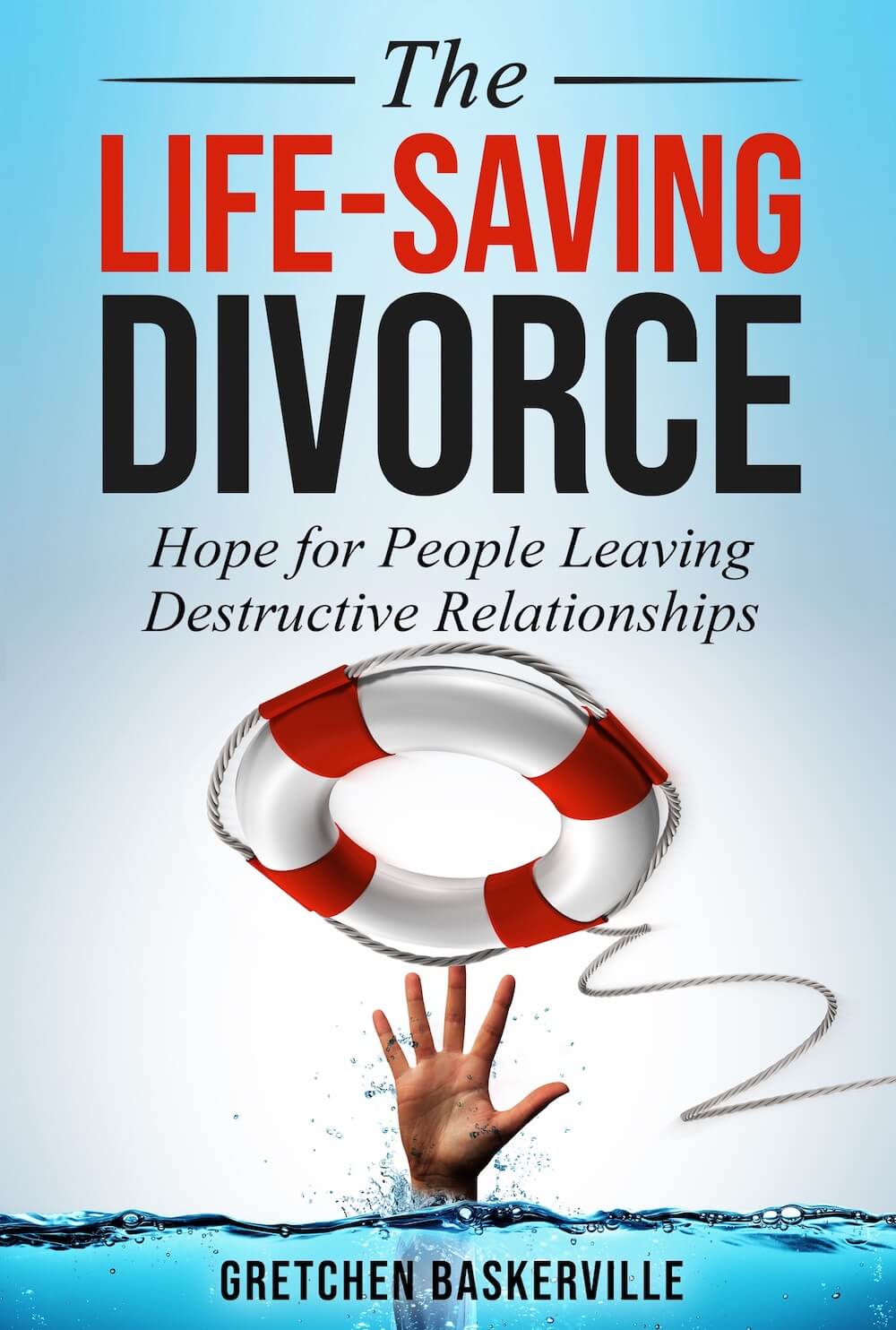Many Christian leaders enjoy quoting the study Does Divorce Make People Happy? from the Institute for American Values, often proclaiming, “Two out of three unhappily married adults who avoided divorce or separation ended up happily married five years later.”
When this secular study was first published in 2002, those who advocated for staying married at all costs jumped on it, telling victims of abuse that if they just endured for five more years, their marriages would magically improve. They also framed divorce as an impulsive and careless decision made by those who didn’t give it enough time, labeling them as selfish quitters who couldn’t stick it out for even a few years.
But that wasn’t all. They went so far as to tell abuse victims things like:
- —”Your unhappy marriage will improve if you just give it five more years.”
- —”Divorce will only make you miserable.”
- —”People who divorce are immature for not waiting it out. And they lack faith in God.”
THE PROBLEM WITH THE MARRIAGE-AT-ANY-COST MESSAGE
Here’s the issue: many of the people pushing this narrative either didn’t read the entire study or, if they did, chose to overlook its actual conclusions. The study was clear on several occasions that abusive and toxic marriages are unlikely to improve. In fact, the study demonstrated that, for many individuals, leaving harmful relationships leads to greater happiness.
Staying in a dysfunctional marriage for five years won’t magically resolve serious problems like infidelity, physical or emotional abuse, severe addiction, abandonment, or neglect. In some cases, leaving is the only option to protect both your happiness—and your safety.
THE REALITY OF TOXIC MARRIAGES
Groups like Focus on the Family often promote the idea that if you just hang in there, most marriages will eventually improve. They regularly cite the 2002 Institute for American Values study and researcher Dr. Waite’s 2003 book, claiming that people who divorce are bound to be unhappy.
But they’re wrong. The study actually found the opposite: individuals in destructive marriages are often better off divorcing. In fact, 81% of those who divorced and remarried during the study were happier in their second marriages. That’s 4-in-5 people.
Yes, you may have heard this quote: “Almost two-thirds of unhappy spouses who stuck with the marriage forged happy marriages down the road.” But what gets left out is that one-third of those marriages remained unhappy. That’s a substantial number of people trapped in miserable marriages!
In fact, the very last sentence of the study highlights that divorce can be the best choice: “…some marriages are so destructive that divorce or separation is the best outcome…” (Does Divorce Make People Happy?, p. 33).
NOT ALL MARRIAGES CAN BE FIXED
Consider another important quote from the study: “Marriages with high conflict and domestic violence were less likely to become happy five years later” (p. 11-12). In other words, if your marriage is rife with conflict or abuse, it’s unlikely to improve over time. The study shows it’s possible to predict which marriages might improve—and abusive ones aren’t in that category.
DIVORCE OFFERS RELIEF AND A PATH TO SAFETY
“If the problem is marital violence, divorce appears to offer significant relief” stated the study. (p. 12).
For individuals in violent marriages, divorce can be life-saving. It offers a way out of harm’s way, and the relief that comes from leaving such a relationship is profound.
Additionally, the study found:
“When an unhappily married adult experiences violence, divorce and remarriage significantly reduce the likelihood he or she will experience domestic violence” (p. 12).
The research shows that divorce and remarriage greatly reduce the chance of encountering violence again. It’s clear that leaving an abusive marriage can be the right decision for many.
Moreover, the study found that 81% of those who divorced and remarried were happy in their second marriages:
“24 percent of those unhappy spouses who divorced or separated ended up in a second marriage within five years. Eighty-one percent of those second marriages were happy” (p. 12).
DIVORCE CAN IMPROVE YOUR WELL-BEING
While not every divorce guarantees happiness, in cases of marital violence, divorce does improve well-being:
“Divorce failed, on average, to result in improvements in psychological well-being for unhappy spouses. With the important exception of reducing the incidence of marital violence…” (p. 13-14).
In essence, if your marriage is abusive, divorce can make you happier by removing the danger.
SOMETIMES, OUTSIDE PROBLEMS IMPROVE MARRIAGES
Dr. Waite, the main author, also pointed out that some marriages improved when the issues were caused by external stressors like job loss or illness, rather than by one spouse’s bad behavior:
“Spouses became ill, lost jobs, got depressed, children got into trouble or created marital stresses by their financial and emotional demands” (p. 15).
However, when a spouse’s character or actions—such as cheating, violence, or addiction—were the issue, those marriages did not improve over time.
DIVORCE CAN HELP CHILDREN IN CONFLICT-RIDDEN HOMES
What about the effects of divorce on children? Later, two of the study’s authors, Dr. Linda Waite and Maggie Gallagher, agreed with researchers Paul Amato and Alan Booth that, while divorce can be challenging for kids, it’s often better for children who are growing up in homes filled with conflict. Divorce is, in fact, beneficial for children in 30% of cases (The Case for Marriage, p. 147).
STAYING IN AN UNHAPPY MARRIAGE CAN DAMAGE YOUR HEALTH
A 2005 study looked more closely at unhappy marriages that had lasted at least twelve years. Using the same data from the 2002 study, researchers found:
“Remaining unhappily married is associated with significantly lower levels of overall happiness, life satisfaction, self-esteem, and overall health… Staying unhappily married is more detrimental than divorcing” (Hawkins and Booth, Unhappily Ever After, 2005).
Put simply, staying in a miserable marriage can negatively affect your physical and mental health. Ending the marriage and starting anew can lead to significant improvements in your life. Researcher Dr. Mavis Hetherington found that women who left hostile or emotionally distant marriages experienced notable health improvements:
“The one striking exception to the otherwise general rule about postdivorce decline in health were women who had been in distant or hostile marriages” (For Better or For Worse, 2002, p. 59).
THE BOTTOM LINE: SOMETIMES, DIVORCE IS THE RIGHT PATH
In conclusion, staying in a toxic marriage isn’t always the best decision. Divorce might be the key to reclaiming your happiness, well-being, and safety.



 :
:
 Buy PDF
Buy PDF